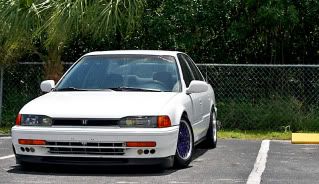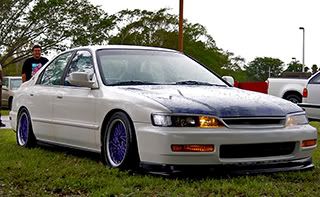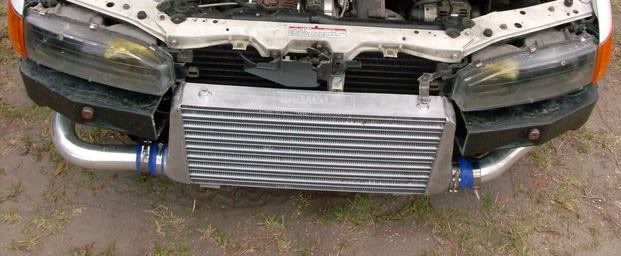 at owequitit's responses.... lol
at owequitit's responses.... lol
Announcement
Collapse
1 of 2
<
>
ANY BUYING/SELLING IN THIS FORUM WILL RESULT IN AN INSTANT BAN!
Read the rules: http://www.cb7tuner.com/vbb/showthread.php?t=43956
Myself, and the other mods have been very nice and lenient with the rules. We have been deleting threads, and giving out warnings. Some members didn't get the clue and re-posted over and over... Now ANY member buying or selling in this section will be banned... No IF's AND's or BUT's.
Myself, and the other mods have been very nice and lenient with the rules. We have been deleting threads, and giving out warnings. Some members didn't get the clue and re-posted over and over... Now ANY member buying or selling in this section will be banned... No IF's AND's or BUT's.
2 of 2
<
>
Beginner Forum Rules - EVERYBODY read! (old and new members alike!)
Beginners start here. Once you have 30 worthwhile posts (off topic doesn't count) you may post outside of the Beginner forums. Any "whoring" (posting simply to raise your post count) will return your count to 0, or result in a ban.
These are the rules. Read them. Live by them.
1) Absolutely NO flaming! "Flaming" is an outright attack on a member. ALL questions are encouraged to be asked here, no matter how basic. Members with over 30 posts will be subject to a ONE WEEK ban if caught flaming in this forum (and yes, moderators can read deleted posts). Members with under 30 posts will be subject to a ONE DAY ban.
2) Use appropriate language. Racial or sexual slurs will not be tolerated. A ban will be issued at the discretion of the cb7tuner.com staff.
3) No items may be sold in the Beginner forums. Any "for sale" threads will be deleted.
4) Temporarily banned members will be PERMANTLY banned if they are found posting on another account.
The rules can and will be added to. Any updates will be marked in the title.
The rules for the overall forum can be found here:
http://www.cb7tuner.com/vbb/forumdisplay.php?f=144
Read them. You will be expected to follow them.
These are the rules. Read them. Live by them.
1) Absolutely NO flaming! "Flaming" is an outright attack on a member. ALL questions are encouraged to be asked here, no matter how basic. Members with over 30 posts will be subject to a ONE WEEK ban if caught flaming in this forum (and yes, moderators can read deleted posts). Members with under 30 posts will be subject to a ONE DAY ban.
2) Use appropriate language. Racial or sexual slurs will not be tolerated. A ban will be issued at the discretion of the cb7tuner.com staff.
3) No items may be sold in the Beginner forums. Any "for sale" threads will be deleted.
4) Temporarily banned members will be PERMANTLY banned if they are found posting on another account.
The rules can and will be added to. Any updates will be marked in the title.
The rules for the overall forum can be found here:
http://www.cb7tuner.com/vbb/forumdisplay.php?f=144
Read them. You will be expected to follow them.
See more
See less
More torque than Horsepower
Collapse
X
-
 at owequitit's responses.... lol
at owequitit's responses.... lol


THEN: 1993 Accord 10th Ann. Ed.---------------------- NOW: 1996 Accord EX
My Ride thread
Flickr
Originally posted by d112crzyAnd it can only get better. That's the best part.
All I gotta really say is:
People of cb7tuner, this AUTO is NOT a joke. It has impressed ME, the hater of auto's.
-
good reply man, thanks
----------------My 92 Honda Accord LX---------------------- My 97 Nissan 240sx LE----
NE GUYS, Buy the last of my accord parts
Comment
-
o quit it, owequitit haha
*Needs*
-New shocks
-Struts
-Drop
-Cleaning
-New Tires/Wheels
-New Window Tint
-Alot more lovin'
My Panda:http://www.cb7tuner.com/vbb/showthre...ghlight=Djmoua
Comment
-
Horsepower is the rate of doing work. The two cars that both have 200hp does not do the same amount of work. They do work at the same rate. Thats like saying u have to guys pushing a rock up a hill. One is pushing a 20lb rock and the other pushing a 40lb. They both get to the top of the hill at the same time so they doing the same amount of work. Thats not true. The one thats pushing 40lb rock up the hill is doing more work. But since they both get to the top of the hill at the same time, they doing work at the same rate. If u want acceleration u want torque. The equation for acceleration is a=Force/Mass. Not horsepower.U accelerate the hardest at your max torque gragh, not your max horsepower gragh. Like i said, horsepower is just the rate of work u do, not how much work u do.
Comment
-
like scott said, if you want to accelerate, you want area UNDER the torque curve. And again, like he already mentioned, you can increase the area under the curve by either making the curve longer, or making the curve "higher"Originally posted by jm991700Horsepower is the rate of doing work. The two cars that both have 200hp does not do the same amount of work. They do work at the same rate. Thats like saying u have to guys pushing a rock up a hill. One is pushing a 20lb rock and the other pushing a 40lb. They both get to the top of the hill at the same time so they doing the same amount of work. Thats not true. The one thats pushing 40lb rock up the hill is doing more work. But since they both get to the top of the hill at the same time, they doing work at the same rate. If u want acceleration u want torque. The equation for acceleration is a=Force/Mass. Not horsepower.U accelerate the hardest at your max torque gragh, not your max horsepower gragh. Like i said, horsepower is just the rate of work u do, not how much work u do.
Comment
-
Originally posted by Accord R33like scott said, if you want to accelerate, you want area UNDER the torque curve. And again, like he already mentioned, you can increase the area under the curve by either making the curve longer, or making the curve "higher"
yeah but it still comes down to torque, How much u have, and how long u have it.I agree what u saying but the main factor is torque and how fast u can produce it. Which means making it longer. Making it in the high rpm.Thats why hondas are fast, because the little bit of torque they do have, they can produce it really fast.
Comment
-
Originally posted by jm991700Horsepower is the rate of doing work. The two cars that both have 200hp does not do the same amount of work. They do work at the same rate. Thats like saying u have to guys pushing a rock up a hill. One is pushing a 20lb rock and the other pushing a 40lb. They both get to the top of the hill at the same time so they doing the same amount of work. Thats not true. The one thats pushing 40lb rock up the hill is doing more work. But since they both get to the top of the hill at the same time, they doing work at the same rate. If u want acceleration u want torque. The equation for acceleration is a=Force/Mass. Not horsepower.U accelerate the hardest at your max torque gragh, not your max horsepower gragh. Like i said, horsepower is just the rate of work u do, not how much work u do.
That is true to a degree, but answer this non hypothetical question.
How does a 200HP Honda keep up with a 200HP Camaro that has far more torque?
Also, acceleration is a rate.
Comment
-
LOL! Sorry, and thank you.Originally posted by jm991700yeah but it still comes down to torque, How much u have, and how long u have it.I agree what u saying but the main factor is torque and how fast u can produce it. Which means making it longer. Making it in the high rpm.Thats why hondas are fast, because the little bit of torque they do have, they can produce it really fast.
It was after 1am when I read your original post, and after a semi frustrating 13 hour day, I was not following it exactly.
Then it hit me like a ton of brick while I was sleeping about 10 minutes ago, so I had to get up and post back (yeah, I know, I am weird).
We are both essentially saying the same thing, so we are both right. You are just trying to quantify it differently, and that is where there is a technical mistake.
If you look at the HP equation:
HP=torque x RPM /5252
You will notice that it accounts for 3 things.
1) Force. So yes, we are interested in total force, because this is our torque value. We can have a small force (Honda), or we can have a big one (small block etc).
2) RATE. This is where the confusion comes in. The HP equation takes into account rate of work (RPM) and is thus creating a result that compares apples to apples, and not apples to oranges.
3) The constant. Don't remember off the top of my head where it comes from, but 5252 has a significant meaning. It isn't a random number, and it insures that everything is comparable.
So, I mentioned in my previous post that Torque is simply a force, and does not imply work. This is true, because unless something is moving, there is NO work.
You mentioned the F=m/a equation which is also valid, but the HP equation accounts for these variables.
As soon as we add a rate of work (RPM), then now we are dealing with HP, which goes back to the HP equation.
So.
When we determine that a 5.0 and a 2.0 both have 200HP. That means they ARE both accomplishing the same amount of work because the HP is a measure of work, NOT a rate, and NOT a force. It is an end result.
The 5.0 is doing it by producing lots of torque at low RPM, the Honda is doing it by producing a little bit of torque at a high rpm.
What you said about work vs rate is true.
The 5.0 is applying a lot of force at a slow rate, and the Honda is applying a little bit of force at a fast rate (low vs high RPM).
Now you mentioned that they aren't necessarily doing the same work, which is false, because HP is a measure of TOTAL WORK and nothing else.
Here is where you confused yourself with the example you gave:
Let's say the 20lb guy is a Honda, and the 40lb guy is a Chevy.Horsepower is the rate of doing work. The two cars that both have 200hp does not do the same amount of work. They do work at the same rate. Thats like saying u have to guys pushing a rock up a hill. One is pushing a 20lb rock and the other pushing a 40lb. They both get to the top of the hill at the same time so they doing the same amount of work. Thats not true. The one thats pushing 40lb rock up the hill is doing more work. But since they both get to the top of the hill at the same time, they doing work at the same rate. If u want acceleration u want torque. The equation for acceleration is a=Force/Mass. Not horsepower.U accelerate the hardest at your max torque gragh, not your max horsepower gragh. Like i said, horsepower is just the rate of work u do, not how much work u do.
Your example takes into account instantaneous work, NOT rate. Why? Because the guy pushing the 20lb rock and the guy pushing the 40lb rock both only go up the hill once.
This means the rate is constant because both went up the same number of times. But you said yourself that the Honda has to leverage a higher RATE. If the Honda has the same RATE (1 trip up the hill), then there is no way the total work done can be equal.
If these were two engines producing HP, and they were both at the same RPM (the same rate), then the guy pushing the small rock would be doing half the work, of the big guy. So what you said is correct there.
Here is the flaw:
Method number one, is to leverage torque. (The guy carrying the 40lb rock)
Leverage #2 is to leverage RPM (the guy carrying less weight, but making more trips).
So that means that in order for the same work to be done, the 20lb Japanese guy would have to go back down the hill, grab another 20lb rock, and then get to the top of the hill at the same time as the guy with the big rock, in order to get the same HP result. That is changing the rate. Making them both do the same number of trips is holding the rate constant.
Or, our small engine would have to rotate twice as fast to make the same amount of HP as the big engine, if it is rated at 1/2 the torque.
So you can see that by virtue of the HP equation, they are creating the same amount of work in 2 different ways, which is what I stated the first time.
Honda is doing less work per RPM, but they are making up for it with high RPMs.
The Chevy guy is doing more work per RPM, but is moving slower, because he is moving more mass per trip.
As long as the HP numbers are the same, then they are both doing the same amount of work.
If you ever have the pleasure of driving a VTEC engine, you will also quickly realize that torque and best acceleration don't necessarily coincide.
The H22 is a good example. Peak torque occurs at 5500 RPM, but the H22 does its best pulling from 5500 RPM till fuel cut at 7800 RPM. It doesn't increase to 5500 and then taper off like a conventional engine.
To some degree that is flawed anyway, because very few engines lose torque so fast that their HP peak occurs at the same place as their torque peak.
In the real world, most engines do their best accelaration between the torque peak, and the HP peak, because that is the region where we have the most area under the curve.
Once we hit the torque peak, we are getting the most bang for our buck. Once it starts to taper off though, we keep increasing RPM's to compensate for the loss of torque. Eventually, we reach a point where if we go any further, we will hit the point of diminishing returns. This point is the HP peak. We have been able to get more work by increasing RPM's up to this point. At this point, increasing RPM's will NOT offset the loss caused by losing torque.
So we are really dealing with a range.
Especially, when you look at a VTEC dyno graph.
If there is a proper VTEC change over, there is NO change in the curvature of the graph. This is because the engine makes peak torque at a certain RPM, and it continues to produce no more than peak torque until cutoff, so by superficial analysis only, you would expect the torque peak to be the biggest point of peformance.
But it is not. You will see HP continue to rise, and acceleration continues to go up. If we are past peak torque and what you say is true, then how can that be?
The answer is the RPM's are going up fast enough to compensate for the slight loss of torque that occurs.
That gets back to total area under the curve, which gets back to my previous post.
This is only one aspect of total performance.
The next biggest step is choosing the correct gearing. This is why Honda needs short closely spaced gears in order to accelerate effectively.
They need to A) get the engine to that RPM range faster, and B) keep it there.
That is why most Hondas have gears and final drives so low, a muscle car guy would be shocked.
It is also why most V8's can have widely spaced tall gears, and STILL get the same acceleration. They are making use of that nice fat torque curve that runs from low RPM's on up.
The most pedestrian Accord has a 4.062 rear end. 3.73 at the rear end for a V8 guy is considered up there.
As long as the gearing keeps the car in the best part of the curve, and the HP to weight ratio is the same, both methods WILL produce the same result.
*Just as an interesting side note, the next thing to discuss would probably be how low gearing effects top speed, and how that automatically gives V8's an advantage.
But again that isn't necessarily true. A good example is an H22 with an Accord tranny. In spite of the comparatively low gears, there is enough RPM potential in a stock H22 to run over 200MPH on an F22 tranny.
The problem is that the vast vast majority of cars run into a drag limitation long before they ever hit the top of their gears. By virtue of the fact that drag increases with the cube of the speed (you need 8X more HP to double your speed) that is as true for V8 guys as it is for Honda guys.Last edited by owequitit; 06-24-2007, 12:35 PM.
Comment
-
Yea, it's got the A6 in it. But it's an automatic. =o Not sure if I'ma keep it as an automatic or not, and if I put a stick in it, I don't want the normal Accord tranny. My friend's gotta 90 Integra, and I don't remember which tranny he got, but his car picks up a lot quicker, with just addin' a new tranny, and an intake. I just figured if I added more torque to the car, than horsepower, I'd get quicker acceleration since it's an automatic. But for it bein' an automatic, it's not too bad. I've never drivin' in a manual one before, so I derno. I don't wanna put a stick in it, and it be slower. 98' Mustang 3V Swap
98' Mustang 3V Swap
11' VW CC R36
Comment
-
heres how i did it
Well itís not much but all I did dude it get more torque than HP. Was the usual small engine upgrades and I changed my f22 transmission for a H22 transmission. When I put the car on the dyno at my school I made 138 hp and 147 torque. I know itís not much but thatís how I did it.

The NIGHTMARE is only Beginning....
Comment







Comment